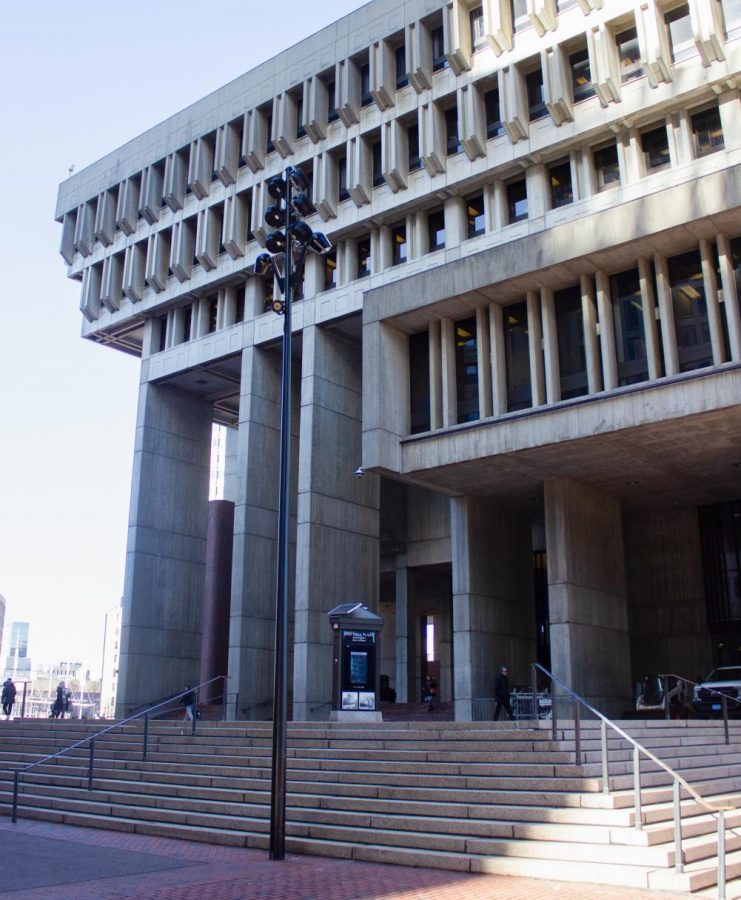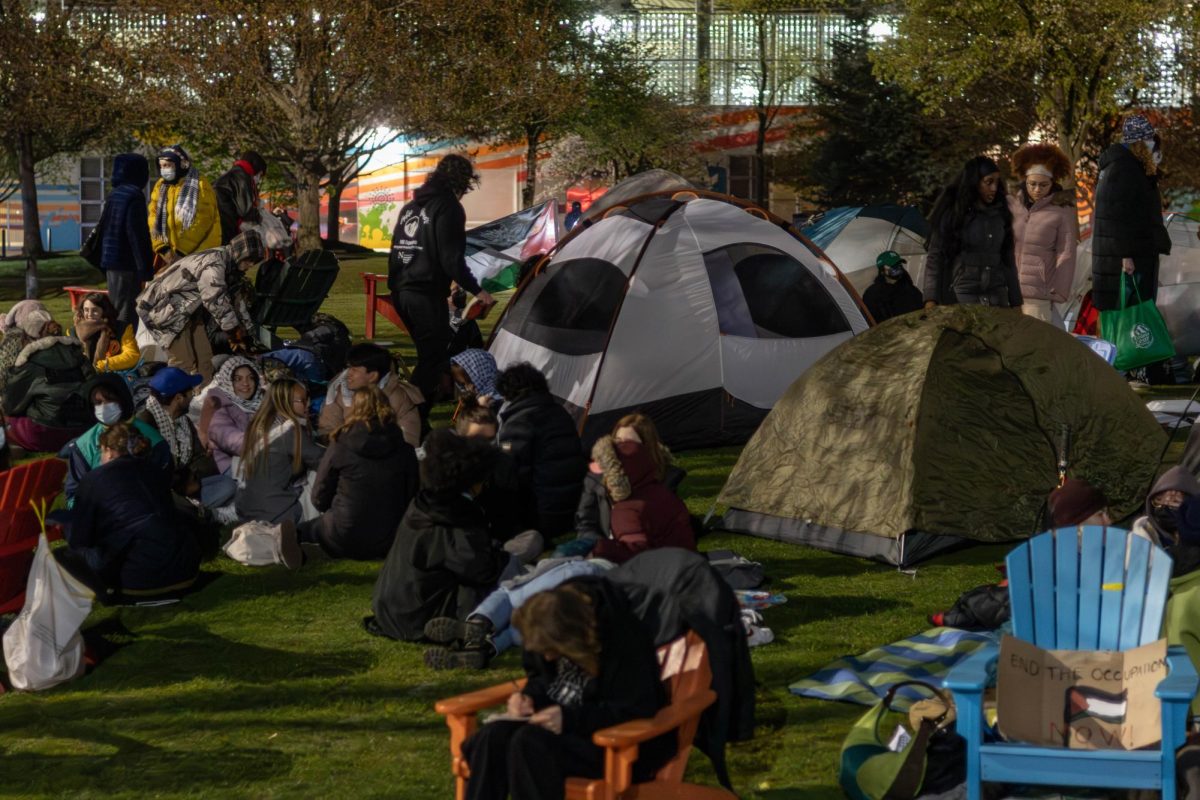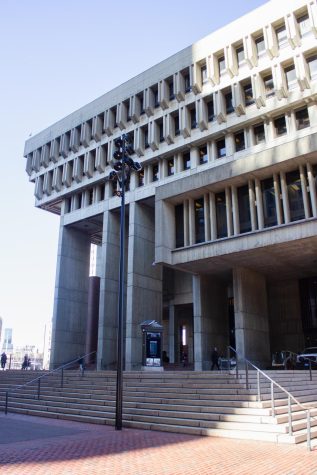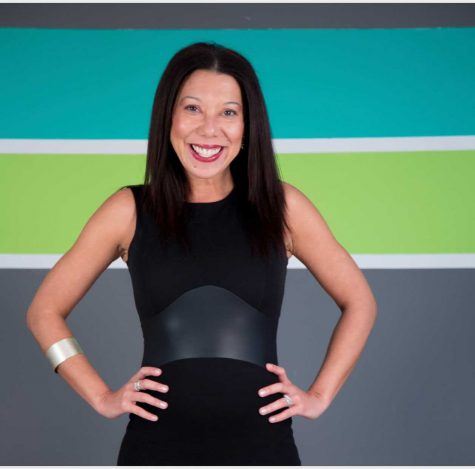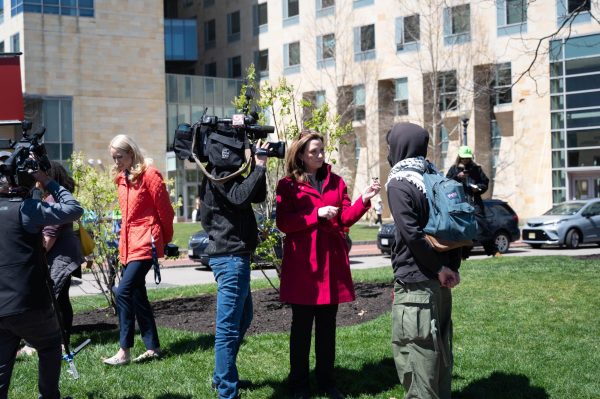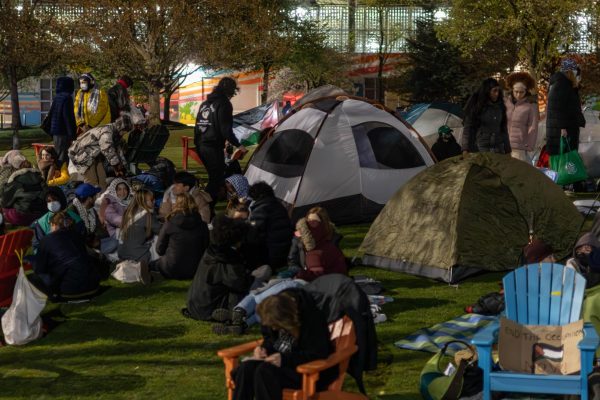Is Boston’s future female? Mayoral candidates discuss final sprint to primaries in forum
Constituents across the City of Boston are preparing to vote in the city’s most diverse mayoral election to date, with a field that includes four women of color.
August 23, 2021
A historic race
Constituents across the City of Boston are preparing to vote in the city’s most diverse mayoral election to date. All of the leading candidates are people of color; four are women.
The preliminary election, which is set for Sept. 14, allows voters to narrow the seven-candidate field to two.
In another historic first, voters will be able to cast their ballot online, in person or through mail-in voting, a change that was instituted during the COVID-19 pandemic and extended through December. The voter registration deadline for Boston’s preliminary election is Wednesday, Aug. 25 at 8 p.m.
Social advocacy organization We, Ceremony hosted a virtual event Aug. 18 to highlight the experiences of the four female candidates and to celebrate their achievements as women of color. City Councilors At-Large Annissa Essaibi-George and Michelle Wu as well as City Councilor for District Four Andrea Campbell joined Acting Mayor Kim Janey to discuss their previous experiences with intolerance and their plan for Boston’s future.
“I have felt the discrimination of being in this skin and in this body but use this lived experience to inform the policy,” Campbell said during the forum. “I often say I’m more than a story. The story and the lived experience bring a sense of compassion, empathy and urgency to the issues we have to grapple with.”
Congresswoman Ayanna Pressley, who represents Massachusetts’ seventh congressional district, kicked off the night by honoring female perspectives.
“When women are at the table, we shake the table,” she said. “We call the question, bring a different perspective, shift the dialogue that in turn shifts policies and … changes the trajectory of the City of Boston.”
Pressley was the first Black woman elected to the Boston City Council in November 2009. She noted that “government is better when it reflects the diverse constituencies that it serves.”
Fair Housing Commissioner for the City of Boston Beya Jimenez, who moderated the forum, echoed Pressley’s sentiment. “For too long here in the City of Boston, the halls of power have been held by men and specifically white men,” Jimenez said. “This problem is not unique to Boston, both locally and nationally, the group that has been most left out of the political process has been women of color and especially Black women.”
Kim Janey
Janey, one of the leading candidates, is currently the first Black person and woman to serve as Boston’s mayor.
“We need to make sure that we are elevating women in every single conversation,” Janey said Wednesday. “That is why I’m so grateful to be with you this evening to talk about these issues. I am proud to join a sisterhood of Black women mayors all across our country.”
Janey was sworn in March 24, following the resignation of former Mayor Marty Walsh. She served as City Council President before assuming her current role. Janey also represents District 7, which includes her hometown of Roxbury and parts of the South End.
Janey said she recalled the Honorable Mel King running for Boston mayor in 1983, making history as the first Black person to run for the position. “I was able to help on that campaign,” she said. “Now, to be here 40 years later is just remarkable, and it’s a testament of how far our city has come.”
Nevertheless, Janey said that there’s still a lot of work to be done. Within the first few months of her term, she has started appointing a number of women of color to positions on her cabinet and on the school committee.
In her recent campaign ad released Monday, Janey lists affordable housing programs, police reform and mass-vaccination as some of her highest priorities.
She notes that her past experiences — facing segregation, young motherhood, housing insecurity and becoming the first Black woman to serve as the city’s mayor — have all informed her identity today.
“I know Boston’s challenges because I’ve lived them,” she said.
Andrea Campbell
Campbell is the other Black woman joining Janey in the mayoral race. She joined the City Council in 2016, and two years later, Campbell became the first Black woman to serve as Boston’s City Council President. She now represents District 4, which primarily includes Dorchester and Mattapan.
Campbell said that she has worked on a whole host of issues during her career, including housing affordability, police reform and economic opportunity. She added that she’s always prioritized equity and the rights of Black women.
Campbell said that she has the most comprehensive public safety plan out of all the candidates. Campbell added that the plan has already been reviewed and vetted by Suffolk County District Attorney Rachael Rollins, who was recently nominated as the first Black woman to serve as U.S. Attorney.
“I don’t want to work toward just decreasing violence in the City of Boston; I want to work toward eradicating it,” Campbell said.
The Boston native is running in part to honor her late twin brother, who died while in a state prison. Campbell’s brother Andre was awaiting trial when he died due to “inadequate healthcare,” Campbell said.
“On the one hand, this city gave me everything I could possibly need, being a poor girl growing up in Roxbury to make it to Princeton University,” she said. “On the flip side, we know it continues to fail so many residents as it filled my twin brother. When I jumped into this race, I said it really is about breaking generational cycles of poverty, trauma and generational iniquity, not just for my family, but for every family in the City of Boston.”
Michelle Wu
Wu, the first to enter the mayoral race, also noted the impact of family on her campaign. With her children about to start a new year at school, Wu said that she’s “living the stakes of our policy challenges.”
Wu is an at-large City Councilor, which means she represents the entire city. She’s also the first Asian-American woman on the council. In 2016, she also became the first woman of color to serve as Council President after she was elected unanimously.
“I have known my whole life what it means to be from an immigrant family and to face the invisible barriers and the physical barriers in language and culture,” Wu said during the forum. She later added, “This conversation is something that I never dreamed of growing up — seeing people who look like me on TV or in a [position of] power.”
Although the candidates stand united on several issues, Wu is the only councilor to fully express support for broader rent control. This controversial measure, which many councilors oppose, is a key component of Wu’s plan to tackle Boston’s housing and displacement crisis. “We can’t be afraid to fight for what our communities need,” she said in a recent Boston Globe article.
Annissa Essaibi-George
Essaibi-George, an Arab-Polish American and at-large City Councilor first elected in 2015, has previously focused on issues, such as economic development and educational reform. Currently, she stands apart from the other three candidates due to her historically moderate stances.
Many voters are contrasting Essaibi-George with her more progressive counterparts. Her largest supporters include members of the police force — Essaibi-George has the largest share of campaign donations from in-field police officers. CommonWealth Magazine also reported that Essaibi-George does not support removing school “resource officers.”
Essaibi-George is a former Boston Public School teacher. “In my 13 years in the classroom, I had a front row seat to the challenges that our kids face that our families face, day in and day out,” she said. “I know how we have to lift up our students, our educators, our school communities, close the achievement gap and make sure that every child receives the education they deserve.”
Preparing for the polls
Boston’s next mayor will typically serve for four years and oversee Boston’s future political transformation—involving issues such as the city’s police force, economy, public schools and climate policies.
The last leading candidate is John Barros, Boston’s chief of economic development under Walsh, who was not present at the women-focused event, but who was nonetheless acknowledged for his achievements as a Black small-business owner.
All of the candidates have urged Bostonians to vote on Sept. 14. Although the final two candidates will not go head-to-head until the Nov. 2 general election, the primary is approaching quickly.
The upcoming months will determine whether Bostonians make history by officially electing the first person or woman of color to serve as the city’s mayor.
For more information about the candidates, click here.
To learn more about the race or register to vote, click here.


